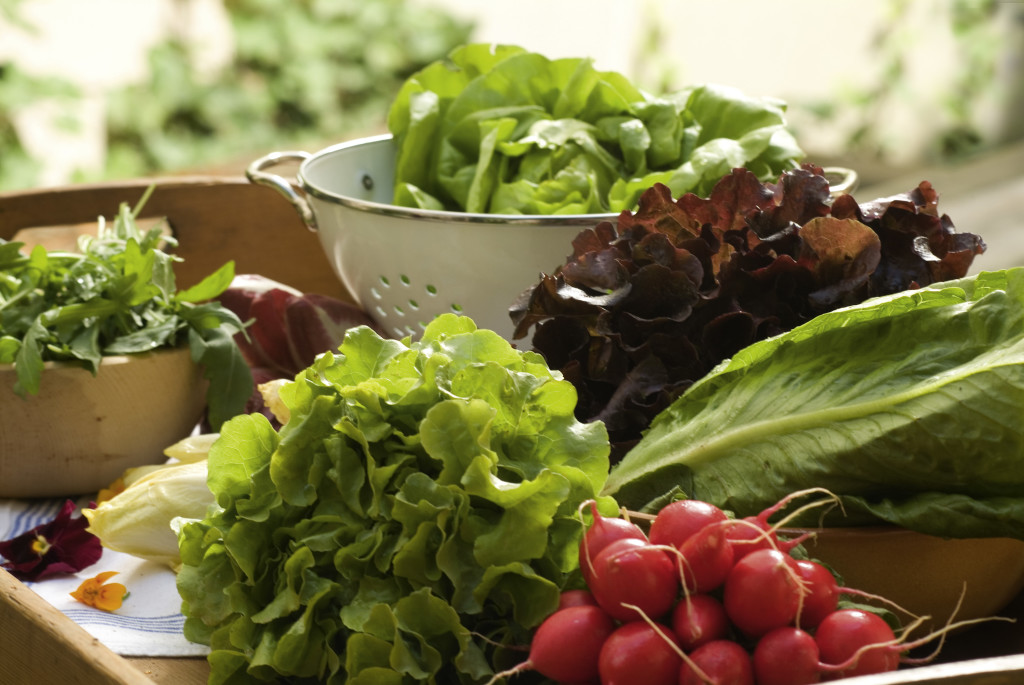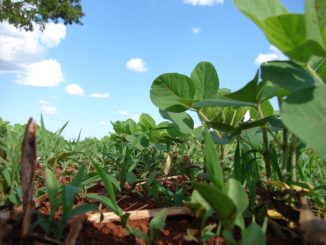By Oliver Moore in Ireland (Title edited 14.00 CET 06/11/2018)
Cancer is an emotive topic, so when a team of French researchers say a higher frequency of organic food consumption was associated with a reduced risk of cancer people will inevitably take note – and try to take apart the study. Meanwhile, Roundup, a tool of conventional farming and land management is in the dock – and loosing – over it relationship with cancer. Oliver Moore reports, adding some broader and historical context.
“Promoting organic food consumption in the general population could be a promising preventive strategy against cancer”. So says the conclusion of a team of French researchers, who logged the stated behaviour of almost 70,000 consumers for five years.
The study, part funded by the French Ministry for Health, was a cohort study to find out whether eating organic food was associated with risk of developing cancer.
Participants provided socio-demographic status, body measurements, health status and lifestyle behaviours.
They then self-described how much they consumed of 16 organic products. Consumers of the most organic food had a 24% lower risk of developing cancer, the researchers found. However it was in relation to breast cancer, lymphomas and non-Hodgkins lymphoma specifically that the link to organic food consumption was found – not for other cancers.
The range of adjustments the researchers factored in is impressive. These were: age and gender, marital status, education, occupational status and monthly income, smoking and alcohol intake, body mass index, physical activity, overall food energy intake and intake of fibre, fruit and vegetables, processed foods and red meat, and finally hormonal factors in women, such as use of hormone treatment and whether they’d been through the menopause or not. Medical records were provided when participants received a diagnosis of cancer.
Caution required – even with the caution
Despite the impressively large number of participants, and the long time period covered, the actual number of cancers developed was low – which suggests caution in drawing conclusions.
And on that, the UK’s NHS (National Health Service) have a great, simple and clear document outlining the pros and cons of the research, and its quite strong conclusion, which make a lot of sense. The conclusion”could be a little premature” the NHS suggests: claims that “eating organic food will reduce cancer rates” remain unproven. It would be better to focus on eating a healthy diet high in fruit, vegetables and fibre and low in processed meat, and to maintain a healthy weight. Eating well, along with taking regular exercise and not smoking, can significantly reduce your risk of developing cancer.”
Many commentators have pointed out that self-reported behaviour can be unreliable. This is certainly true, but there is another aspect to this that does not seem to have been picked up.
Self-reporting allows people to project better behaviour than they practice in real life. In other words, the main concern with self-reporting is that people tend to present a better impression of themselves in surveys of this kind than is the case their daily life. So people are more likely to smoke less or not at all, to drink less alcohol, to rarely or never have unprotected sex – people are probably that little bit taller and a little thinner… a little all-round better in their surveyed self than IRL -in real life.
Taking this into account would actually make the case for organic food even stronger, because people may well be over-reporting their organic food consumption. This is more likely than under-reporting, as people are more likely to over-report good behaviour, but of course there is no evidence without compelling people to produce receipts. For future studies, digitally verified purchasing patterns could give more robust information than self-reporting.
(As it happens, this author’s PhD was on the specific topic of trust in organic food, so understanding the difference between what people say and do in relation to organic food is something much time was devoted to getting to grips with!)
Interestingly, those who said they consumed the most organic food saw the most significant results, whereas “there were no differences in people who ate moderate amounts of organic food compared with those who ate the least” as the NHS put it.
The conclusions drawn by the French researchers were quite strong, and so often is the case, more research will be needed.
Non-Hodgkins lymphoma
What in particular may be worthy of further investigation is non-Hodgkins lymphoma’s link to food and organic food – in both consumption and production. This was one of the three cancers where the researchers found “a higher frequency of organic food consumption was associated with a reduced risk of cancer” – and singled out specifically in the study – though with a small number of cases to work from.
This is also the cancer DeWayne Johnson developed, the plaintiff in the recent court case against Monsanto and its product Roundup.
Thousands of workers and farmers are suing Bayer (which owns Monsanto) because they too have developed cancer. Johnson’s case was the first heard because he is very likely to soon die from this cancer.
Johnson, a groundskeeper, was twice accidentally doused with Roundup in the course of his work, and when he contacted the helpline for advice, no help was made available, he said in the court case.
As predicted by astute lawyers when the verdict came out, the jury result was upheld by a Judge on 22nd October but the amount awarded was reduced (from $289 million to $78 million) David Levine, a law professor and civil litigation expert based in San Francisco, was reported in the San Francisco chronicle as predicting that the judge, or a likely future appeal, “would reduce Johnson’s damage award but would probably leave intact the jury’s finding that Monsanto was responsible for his cancer.”
In the initial case, the jury agreed with Johnson’s team that Monsanto should have provided a label warning of the exposure health hazard.
The jury also found Monsanto had “acted with malice or oppression”, was responsible for “negligent failure” and knew – or should have known – that Roundup was “dangerous”.
As a groundskeeper, Johnson used Roundup regularly, sometimes for several hours a day: “during gusty winds, the product would cover his face,” CBS reported Brent Wisner, one of Johnson’s attorneys, as saying.
Wisner also added:
“We were finally able to show the jury the secret, internal Monsanto documents proving that Monsanto has known for decades that … Roundup could cause cancer…. its years of deception regarding Roundup is over and that they should put consumer safety first over profits”.
Accidents Happen
It’s clearly in their own interests for farmers and workers to be as careful as possible when handling biocides. However it is also the case that, in the largest study of pesticide drift ever conducted published in Environmental Health Perspectives in 2011, half of cases recorded were due to accidents.
Accidents happen. Over time, they are almost inevitable. Accidental drift and accidental dousing happen. While consumer concerns often dominate headlines on biocides and their safety, and while individual consumers ingest tiny amounts of biocides while eating, workers and farmers are handling far larger quantities, and are thus exposed on a different level.
Whatever the relation to cancer – and there is much still to be established, particularly at the consumer level, worker and farmer exposure and the likelihood of accidents needs to be considered in risk assessments of biocides.
Late Lessons from Early Warnings
When considering whether to take the more precautionary or so-called risk based approach to regulation of substances, its interesting to look back at what has happened over time. In particular, the Late Lessons From Early Warnings series (from 2002 and 2013) by the European Environmental Agency is both clear headed and also very revealing.
The publication does what it say: society is too good at learning late lessons – at making that necessary adjustment years later – despite the early warnings received. Cigarettes, lead in paint and petrol, and a host of other examples are cited.
A relevant one from an agri-food perspective is in the case of the pesticide Dibromochloropropane (DBCP), used against nematodes in fruit production. Research emerged in the early 1960s on reproductive problems in rats. The pesticide made the testicles of the rodents shrink and significantly reduced the quantity and quality of sperm. Nevertheless DBCP was brought to market.
By 1977 workers at a production plant in the US became worried that they were unable to father children. So its use was restricted in the US but still allowed in the fields of Latin American and elsewhere. By the 1990s, these other workers were winning tens of millions of dollars in class actions against manufacturers. As Eula Bingham (in 1977 US Assistant Secretary of Labor for Occupational Safety and Health) and Celeste Monforton wrote in the Late Lessons from Early Warnings report: “These settlements came 20 years after each of these firms knew about the potential reproductive health risks to DBCP pesticide spray workers, which had stopped their use in the US. Nevertheless, the firms marketed and sold DBCP abroad without ensuring that worker health would be adequately protected.”
Looking back, the arguments made to keep using biocides of the past can seem incredulous. Here’s what the US National Peach Council, which tried to delay US legislation on DBCP, said at the time: “While involuntary sterility caused by a manufactured chemical may be bad, it is not necessarily so. After all, there are many people who are now paying to have themselves sterilized to assure they will no longer be able to become parents.”
Perhaps the manufacturers should have sent a bill to the workers for the procedure?
Conclusion
In the final analysis, this French research does need to be backed up with more robust evidence in the future – but its a promising start. The precarious position of workers – sometimes undocumented and thus far more vulnerable – and of farmers, regarding handling biocides, is also a significant concern. While there have always been natural toxins out there, there are now many more newly manufactured substances – and combinations of substances – than at any stage before in known human history. There is quite a list of environmental chemicals of concern in daily life. In this context it can seem ridiculously limited to focus on this chemical or that.
Nonetheless, its important to start, as it were, batting away the baddies. Increasingly, organic food and organic farming seem like sensible ways to start.
Parts of this article have appeared in the Irish Examiner newspaper’s farming section.
More
One of the attorney’s from the Monsanto trial interviewed
https://www.facebook.com/greensefa/videos/1849498708419709/
This TED Talk by Margaret Heffernan is a good example of how late late lessons really can be.
You are currently viewing a placeholder content from Default. To access the actual content, click the button below. Please note that doing so will share data with third-party providers.






